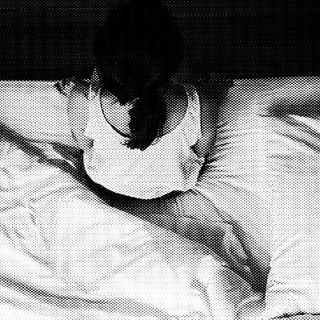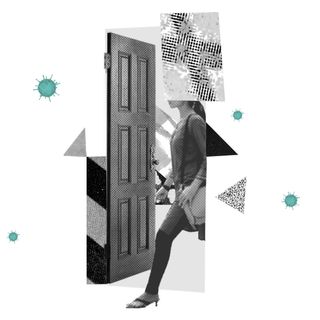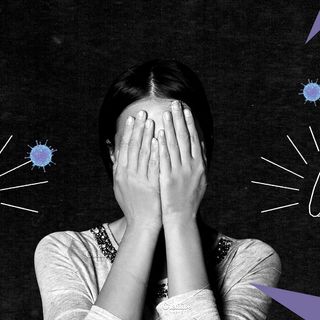
Unresponsive Helplines, Limited Testing Are Leaving People Suspicious of Their Covid19 Status
The only avenues left for people with coronavirus-like symptoms are social distancing and meds prescribed by local doctors.

Utsav Sarkar, 26, from Mumbai, was 100% sure he needed a Covid19 test. A day after he had interacted with two of his brother’s guests at home — one from Dubai, another from Canada — he experienced fever symptoms. He called the toll-free, emergency coronavirus helpline multiple times, to no response. When he finally got through, the emergency responder, upon hearing Sarkar’s symptoms and history of exposure, repeatedly assured him there was nothing to worry about. “I don’t know how he knew that. He kept saying ‘Bhai, this is nothing.'” Frustrated, Sarkar went to a local doctor the next day, who prescribed him flu medicine; out of options, he decided to self-isolate from that day on.
“Nobody is checking me properly, and I didn’t want anyone to catch the virus because of me. … I’m still obsessing over the fact that if I have it, 10 other people could get it. And there’s no way to know.”
Sarkar’s dilemma is one many in India are currently struggling with. Covid19 testing is woefully limited — only 10.5 tests are available per million people, according to data as of March 21. Only patients who are either international travelers or have had direct contact with a confirmed Covid19 case, who also show symptoms such as cough, fever, and shortness of breath, can get a diagnosis. If a person with any of these symptoms shows up to get a test, but has no history of foreign travel or exposure to a traveler with Covid19, then they’re not considered eligible for the coronavirus test.
This practice is based on the faulty notion that people living in India can only be infected by people from other countries or by local people who display symptoms. But this ignores the latest scientific facts: people can be carriers of Covid19 and show no symptoms of the virus — but still be able to infect others with it. Most public health experts now agree community-level transmission — coronavirus passing between people who have not traveled out of the country and not come into contact with a confirmed Covid19 case — is at play in India, despite the official tally diagnosed via testing. Given the country took 50 days to detect 200 confirmed coronavirus cases, and in the last three days, that number jumped to 400, according to IndiaSpend — it’s clear the actual number of Covid19 cases in India is much, much higher than testing can identify.
Related on The Swaddle:
The Latest on Coronavirus Cases in India
Simran Suri, 23, from Pune, for example, landed in India from London, in mid-March. While she exhibited no symptoms, she kept trying the coronavirus helpline for information about what measures she should take, especially as her father and sister had started exhibiting sore throats, respiratory congestion, and other flu-like symptoms. When she got no response from the helpline, the family, upon a local doctor’s advice, decided to isolate the father, sister, and Suri from each other and from other family members. Suri is not convinced the illness is the flu but said she has very few options. “Because India is not yet ready to handle this, and we need to find out our own solutions instead of blaming or making it difficult for the system,” Suri said. “It’s so stressful because the fact that even if I don’t have the symptoms I have the virus and that means I have already infected my family kills you. … Watching my dad get sick is the worst thing ever and not knowing what to do is even more threatening for us.”
The World Health Organization has given a clear directive to countries battling the Covid19 pandemic: test, test, test. “All countries should be able to test all suspected cases, they cannot fight this pandemic blindfolded,” WHO director Tedros Adhanom Ghebreyesus said in a statement. India is only now starting to expand its Covid19 testing ambit slowly — the Indian Council of Medical Research (ICMR) announced testing would now include asymptomatic people who have had a history of exposure to a confirmed case; the government is also roping in national laboratories and setting guidelines for privatized testing.
But all of this takes time to put in place. Meanwhile, people like Suri and Sarkar, who are unsure of their coronavirus status, are dealing with uncertainty and fear alone.
Yashu Poddar, 26, landed in Delhi from the U.S. on March 16, following which she was advised by airport officials to self-quarantine due to her travel history. While she felt healthy, she knew Covid19 symptoms can take up to two weeks to manifest. She decided to get a coronavirus test to ensure she wasn’t a threat to her family — to no avail. She said she was constantly turned away from Dr. Ram Manohar Lohia (RML) Hospital because she showed no symptoms; she was told to isolate and observe. While following the protocol that was communicated to her, Poddar said her neighbors called the police on her, thinking she had brought the virus from France — where she had never been. Three policemen took her to get tested to RML hospital — where she was once again turned away.
Related on The Swaddle:
Debunking the Myths About Covid19
“I am more than aware of my responsibility towards the society, and it isn’t my fault if I do end up having the virus. It is my responsibility to not spread it,” Poddar said. A societal casualty of this definitive diagnosis, however, is the lack of acceptance Poddar faced from her community — she could neither deny she had the virus, nor confirm she did and assure her community she was getting treated. In this limbo, she said, she and her family were continuously harassed by their neighbors. “The mentality around [coronavirus] also needs to change: people running and stigmatizing is not going to help. This is a feeling of anxiety and being scared all the time.”
Many uncertain about their Covid19 status are now giving up on finding closure. “For now, I’ve just let go of the panic and the anxiety because it’s been traumatizing. Today is Day 7 of whatever this is I [have],” Bhargav Prasad, 26, from Chennai, said. Upon experiencing cough, muscle weakness and fever symptoms, Prasad had repeatedly tried the Tamil Nadu coronavirus helpline, pestered his local hospital to deliver the Covid19 test to him, and ultimately gave up when no response manifested. “For now, with nothing else to rely on, I’m only touting what the doctor in the testing facility told me: ‘You don’t have it for sure, you don’t need the test, but assume you have it and isolate for another week’ — which is anything but comforting,” Prasad said. “Now, it’s not about me. I’m young and even if I do have it, data is on my side, so, I should be fine. But the negligence and lethargy with which our government is testing is scary.”
Rajvi Desai is The Swaddle's Culture Editor. After graduating from NYU as a Journalism and Politics major, she covered breaking news and politics in New York City, and dabbled in design and entertainment journalism. Back in the homeland, she's interested in tackling beauty, sports, politics and human rights in her gender-focused writing, while also co-managing The Swaddle Team's podcast, Respectfully Disagree.
Related


Now Is Not the Time to Get Tired of Social Distancing
